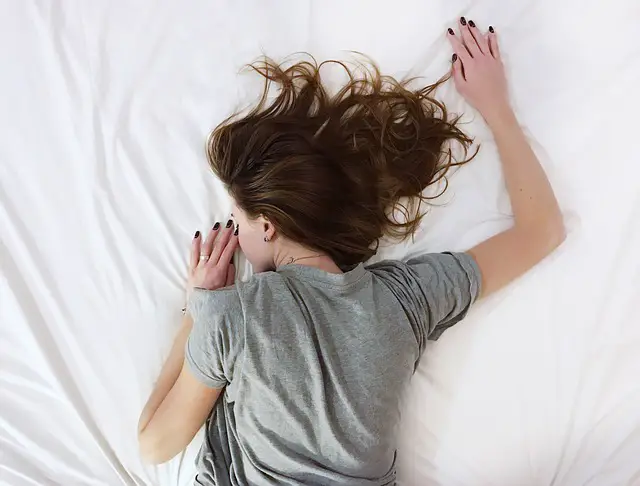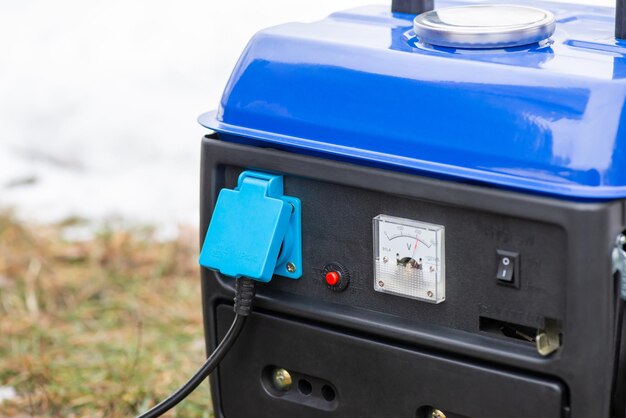Exploratory Advancement on Insomnia Causes, Symptoms, Treatment and Dietary Recommendation

Insomnia is a common sleep disorder characterized by difficulty falling asleep, staying asleep, or both, despite having the opportunity to sleep. It can have a significant impact on daily functioning, leading to daytime fatigue, irritability, and difficulty concentrating. Understanding the causes, symptoms, and treatment options for insomnia is essential for effectively managing this condition and improving sleep quality.


Page Contents
- 1 Exploratory Advancement on Insomnia Causes, Symptoms, and Treatment
- 2 7 Causes:
- 3 6 Symptoms:
- 4 8 Treatment:
- 5 Insomnia is also a common issue among individuals with psychiatric disorders, and there are several reasons why this connection exists.
- 6 Here are some of the key 10 factors contributing to the high prevalence of insomnia in people with psychiatric disorders:
- 7 While there’s no specific one “miracle” food that can cure insomnia, certain foods can help promote better sleep by providing nutrients and compounds that support relaxation, melatonin production, and overall sleep quality.
- 8 Here are some of the best foods to incorporate into your diet to combat insomnia:
- 9 Conclusion:
Exploratory Advancement on Insomnia Causes, Symptoms, and Treatment
7 Causes:
Insomnia can be caused by a variety of factors, including:
- Stress and Anxiety: Psychological factors such as stress, anxiety, depression, and worry can interfere with the ability to relax and fall asleep. Racing thoughts and an overactive mind can make it difficult to unwind and transition into sleep.
- Poor Sleep Habits: Irregular sleep schedules, excessive napping, and inconsistent bedtime routines can disrupt the body’s internal clock and contribute to insomnia. Stimulating activities such as excessively watching TV or movies, prolonged using electronic devices, or overweening videogames, and engaging in stimulating activities before bedtime can disrupt the body’s natural sleep-wake cycle and contribute to insomnia.
- Medical Conditions: Certain medical conditions, such as chronic pain, asthma, allergies, gastrointestinal disorders, hormonal imbalances, and neurological conditions can disrupt sleep and contribute to insomnia. Steep lack of sleep could eventually lead to negatively influence diet, stress and other lifestyle factors that can raise the risk of cardiovascular disease, high blood pressure, obesity, and diabetes.
- Medications: Some medications, including antidepressants, stimulants, corticosteroids, and medications for high blood pressure or asthma, can interfere with sleep and contribute to insomnia as a side effect.
- Substance Use: The use of substances such as caffeine, coffee, nicotine, alcoholic beverages, and recreational drugs can disrupt sleep patterns and contribute to insomnia.
- Environmental Factors: Environmental factors such as noise, light, temperature, and uncomfortable sleeping conditions can interfere with sleep and contribute to insomnia.
- Shift Work: Irregular work schedules, overnight shifts, and rotating shifts can disrupt the body’s natural circadian rhythm and contribute to insomnia.
6 Symptoms:
The symptoms of insomnia can vary from person to person and may include:
- Difficulty Falling Asleep: Individuals with insomnia may have difficulty falling asleep despite feeling tired or sleepy.
- Difficulty Staying Asleep: Individuals with insomnia may wake up frequently during the night and have difficulty returning to sleep.
- Non-Restorative Sleep: Even after a full night’s sleep, individuals with insomnia may wake =up feeling unrefreshed and fatigued.
- Daytime Fatigue: Insomnia can lead to daytime fatigue, sleepiness, irritability, difficulty concentrating, and impaired cognitive function.
- Mood Disturbances: Insomnia can contribute to mood disturbances such as irritability, anxiety, depression, and mood swings.
- Impaired Functioning: Chronic insomnia can impair functioning in daily activities such as work, school, and social interactions.
8 Treatment:
Treatment for insomnia typically involves a combination of lifestyle changes, behavioral interventions, and, in some cases, medication. Here are some treatment options for insomnia:
- Sleep Hygiene: Practicing good sleep hygiene involves adopting healthy sleep habits and routines to promote better sleep. This may include maintaining a regular sleep schedule, creating a comfortable sleep environment like having many pillows and comforter blankets and wool or fleece blankets, regularly changing clean beddings, avoiding stimulating activities before bedtime, and limiting exposure to screens and electronic devices.
- Cognitive-Behavioral Therapy for Insomnia (CBT-I): CBT-I is a structured therapeutic approach that focuses on changing negative thoughts and behaviors related to sleep. It may involve techniques such as relaxation training, stimulus control, sleep restriction, and cognitive restructuring to improve sleep quality and duration.
- Relaxation Techniques: Relaxation techniques such as deep breathing exercises, progressive muscle relaxation, meditation, and mindfulness can help reduce stress and promote relaxation before bedtime.
- Stimulus Control: Stimulus control techniques involve associating the bed and bedroom with sleep and avoiding activities such as watching TV, working, or eating in bed. This helps strengthen the association between the bedroom and sleep.
- Sleep Restriction: Sleep restriction involves limiting the time spent in bed to match actual sleep time, which can help consolidate sleep and improve sleep efficiency.
- Medications: In some cases, medications may be prescribed to help manage insomnia symptoms. These may include over-the-counter sleep aids, sedatives, or prescription medications such as benzodiazepines or non-benzodiazepine hypnotics. However, these medications are typically used on a short-term basis due to the risk of dependence and tolerance.
- Addressing Underlying Conditions: Treating underlying medical conditions, such as chronic pain, anxiety, depression, or sleep disorders, can help improve sleep quality and reduce insomnia symptoms.
- Lifestyle Changes: Making lifestyle changes such as reducing caffeine and alcohol intake, quitting smoking, increasing physical activity, and managing stress can help improve sleep quality and reduce the risk of insomnia.
Insomnia is also a common issue among individuals with psychiatric disorders, and there are several reasons why this connection exists.
Here are some of the key 10 factors contributing to the high prevalence of insomnia in people with psychiatric disorders:
- Psychological Symptoms: Many psychiatric disorders, such as depression, anxiety, post-traumatic stress disorder (PTSD), and bipolar disorder, are associated with psychological symptoms such as rumination, worry, intrusive thoughts, and emotional distress. These symptoms can make it difficult to relax and fall asleep, leading to insomnia.
- Biological Factors: Psychiatric disorders are often accompanied by alterations in brain chemistry, neurotransmitter imbalances, and changes in hormonal regulation. These biological factors can disrupt the body’s natural sleep-wake cycle and contribute to sleep disturbances and insomnia.
- Medications: Some medications used to treat psychiatric disorders, such as antidepressants, antipsychotics, mood stabilizers, and stimulants, can have side effects that interfere with sleep. These medications may cause insomnia, daytime drowsiness, restless legs syndrome, or other sleep disturbances.
- Co-Occurring Conditions: Individuals with psychiatric disorders are more likely to have co-occurring medical conditions that can contribute to sleep problems. Chronic pain, gastrointestinal disorders, respiratory conditions, and neurological disorders are examples of conditions that may coexist with psychiatric disorders and contribute to insomnia.
- Stress and Trauma: Psychiatric disorders are often associated with high levels of stress, trauma, and life difficulties. Chronic stress and traumatic experiences can lead to hyperarousal, heightened vigilance, and an overactive stress response system, all of which can disrupt sleep patterns and contribute to insomnia.
- Sleep Disordered Breathing: Some psychiatric disorders, such as depression and schizophrenia, are associated with an increased risk of sleep-disordered breathing, including obstructive sleep apnea and insomnia-related breathing disturbances. These breathing problems can lead to fragmented sleep and daytime fatigue.
- Circadian Rhythm Disruptions: Psychiatric disorders can disrupt the body’s circadian rhythm, the internal clock that regulates the sleep-wake cycle. Irregular sleep schedules, exposure to artificial light at night, and disruptions in daily routines can further exacerbate circadian rhythm disruptions and contribute to insomnia.
- Substance Use: Substance use disorders commonly co-occur with psychiatric disorders and can contribute to sleep disturbances and insomnia. Alcohol, caffeine, nicotine, and recreational drugs can disrupt sleep patterns, reduce sleep quality, and worsen insomnia symptoms.
- Cognitive Factors: Cognitive factors such as negative thoughts, racing thoughts, and cognitive arousal can contribute to insomnia in individuals with psychiatric disorders. Rumination, worry, and catastrophic thinking patterns can keep the mind active and make it difficult to relax and fall asleep.
- Lifestyle Factors: Individuals with psychiatric disorders may have lifestyle factors that contribute to insomnia, such as irregular sleep schedules, poor sleep hygiene habits, excessive screen time before bedtime, and lack of physical activity. These lifestyle factors can further disrupt sleep patterns and worsen insomnia symptoms.
Overall, the relationship between psychiatric disorders and insomnia is complex and multifaceted, involving a combination of psychological, biological, social, and environmental factors. Addressing both the psychiatric disorder and the associated sleep disturbances is important for effectively managing insomnia in this population. This may involve a comprehensive treatment approach that includes psychotherapy, medication management, sleep hygiene education, and lifestyle modifications tailored to the individual’s specific needs and circumstances.
While there’s no specific one “miracle” food that can cure insomnia, certain foods can help promote better sleep by providing nutrients and compounds that support relaxation, melatonin production, and overall sleep quality.
Here are some of the best foods to incorporate into your diet to combat insomnia:
- Cherries: Cherries are one of the few natural food sources of melatonin, a hormone that regulates sleep-wake cycles. Consuming tart cherry juice or whole cherries may help improve sleep quality and duration.
- Bananas: Bananas are rich in potassium and magnesium, two minerals that promote muscle relaxation and may help regulate sleep patterns. They also contain tryptophan, an amino acid that can be converted into serotonin and melatonin in the body.
- Almonds: Almonds are an excellent source of magnesium, which has been linked to better sleep quality. They also contain tryptophan and are a good source of protein, which can help stabilize blood sugar levels throughout the night.
- Oats: Oats are a complex carbohydrate that can help increase serotonin levels in the brain, promoting relaxation and sleepiness. Enjoying a bowl of oatmeal with milk before bedtime may help promote better sleep.
- Turkey: Turkey is rich in tryptophan, an amino acid that plays a key role in the production of serotonin and melatonin, both of which are involved in regulating sleep. Including turkey in your evening meal may help promote feelings of relaxation and sleepiness.
- Salmon, mackerel or tuna: Fatty fish like salmon, mackerel or tuna are high in omega-3 fatty acids, which have been linked to better sleep quality. Additionally, salmon is a good source of vitamin D, which may play a role in regulating sleep patterns.
- Leafy Greens: Leafy green vegetables such as spinach, kale, and Swiss chard are rich in magnesium, which can help promote muscle relaxation and improve sleep quality. They also contain calcium, which plays a role in producing melatonin.
- Kiwi and Mangosteen: Kiwi and mangosteen fruits are rich in antioxidants, vitamins, and minerals, including vitamin C and potassium. Some research suggests that consuming mangosteen, and then kiwi before bedtime may help improve sleep onset, duration, and efficiency.
- Whole Grains: Whole grains such as brown rice, quinoa, and barley are rich in complex carbohydrates, which can help increase serotonin levels in the brain and promote relaxation. They also contain magnesium and tryptophan, which support better sleep.
- Chamomile Tea: Chamomile tea is a popular herbal remedy for promoting relaxation and improving sleep quality. It contains antioxidants and compounds that may have mild sedative effects, making it a soothing bedtime beverage.
- Dairy Products: Dairy products like milk, yogurt, and cheese contain tryptophan and calcium, which can help promote relaxation and improve sleep quality. Enjoying a warm glass of milk or a small serving of yogurt before bedtime may help promote better sleep.
- Honey: Honey is a natural source of glucose, which can help stimulate the release of insulin and promote the uptake of tryptophan into the brain. Adding a small amount of honey to a bedtime snack or beverage may help enhance its sleep-promoting effects.
In addition to incorporating these sleep-promoting foods into your diet, it’s also important to practice normal good sleep hygiene habits, such as maintaining a regular sleep schedule, creating a comfortable sleep environment, and limiting exposure to screens and electronic devices before bedtime. If you’re experiencing persistent insomnia or sleep disturbances, consider consulting with a healthcare provider or sleep specialist for further evaluation and treatment recommendations tailored to your individual needs.
Conclusion:
Insomnia is a common sleep disorder characterized by difficulty falling asleep, staying asleep, or experiencing non-restorative sleep. It can have a significant impact on overall health and quality of life if left untreated. Fortunately, there are effective treatments available for insomnia, including lifestyle changes, behavioral interventions, exercise and, in some cases, medication. By addressing the underlying causes and adopting healthy sleep habits and routines, individuals with insomnia can improve their sleep quality and overall well-being. If you’re experiencing symptoms of insomnia, consult with a healthcare provider or sleep specialist for proper evaluation and treatment recommendations tailored to your individual needs.







